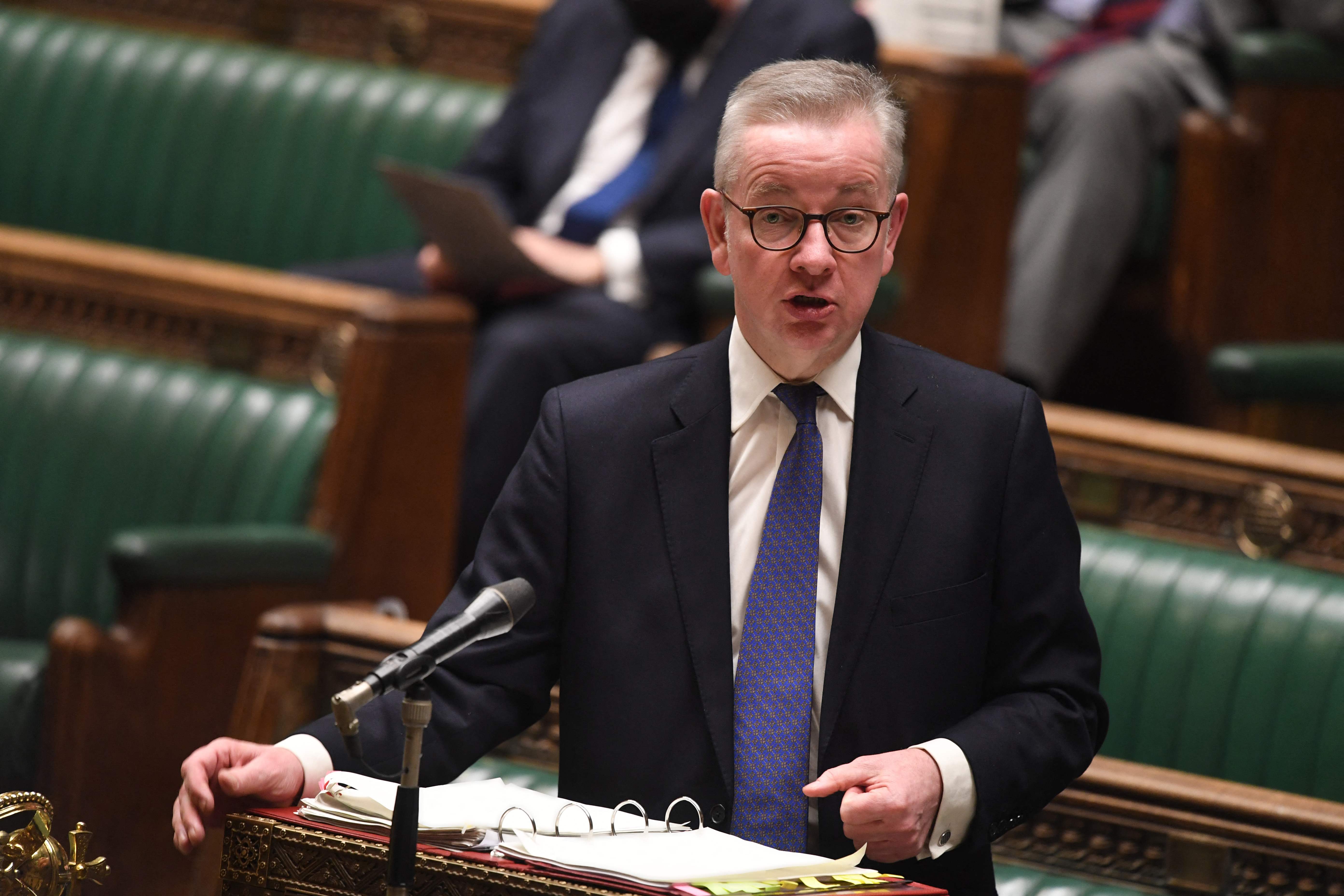Levelling up: A plan that’s big on problems – but not on how to fix them
Analysis: Economics Editor Anna Isaac looks at what is – and isn’t – in the flagship white paper unveiled by Michael Gove


Your support helps us to tell the story
From reproductive rights to climate change to Big Tech, The Independent is on the ground when the story is developing. Whether it's investigating the financials of Elon Musk's pro-Trump PAC or producing our latest documentary, 'The A Word', which shines a light on the American women fighting for reproductive rights, we know how important it is to parse out the facts from the messaging.
At such a critical moment in US history, we need reporters on the ground. Your donation allows us to keep sending journalists to speak to both sides of the story.
The Independent is trusted by Americans across the entire political spectrum. And unlike many other quality news outlets, we choose not to lock Americans out of our reporting and analysis with paywalls. We believe quality journalism should be available to everyone, paid for by those who can afford it.
Your support makes all the difference.The levelling-up white paper lays out the problem of regional inequality. But it doesn’t offer a cost-benefit analysis for the cure – or the means to buy the medicine.
The consensus from economists and policy-makers is that it’s a start. However, years after the promise to level up the nation was sold to voters in the 2019 election, it is no more than a start.
Swathes of the 332-page document are dedicated to the history of economics rather than a meaningful action plan. That includes an entire page that republishes an infographic from a 2016 Guardian article on ancient history.
The rest of the paper explores the flagship policy’s 12 missions, which range from skills to transport and lay out how small amounts of cash have been given to different areas.
It has three main limitations: cash, local powers and timelines.
The levelling-up fund is worth £4.8bn for a UK population of about 70 million. It is helpful to put that number in some context in order to understand just how small it is in terms of a flagship economic, social and moral policy. The public and politicians will probably end up asking, “Where are the billions?” Economists are likely to be left asking, “Where are the trillions?”
There’s no easy like-for-like comparison, but the whole national fund is less than half of the annual budget for Manchester City Council for the next financial year, an institution that serves around 600,000 people.
It is not just that the investment involved is small. It is that while the missions the paper lays out are given a 10-year rolling deadline there is no clear long-term financial commitment from central government laid out in the document.
This is not a project that can be done quickly or on the cheap. The unified German government has been trying to level up east and west since 1990. It has spent around €2trillion and still not managed it entirely – unemployment remains stubbornly higher in the former communist east.
Boosting skills and industry requires long-term financial settlements. Programmes of study also need to be plugged into trade strategy. The paper falls very short on detail in these crucial areas.
It notes benefits of deals that have not even been successfully negotiated and does not – for instance – ask the question about how exactly the government and private sector will train workers who can benefit from exporting to countries such as those within the Comprehensive and Progressive Agreement for Trans-Pacific Partnership.
While politicians and politically-minded economists might disagree about whether levelling-up efforts should drive greater investment or more tax cuts and relaxed planning laws, the paper offers few next steps on either.
It leaves the question of radical changes to the planning process for another day, money to develop brownfield sites is siloed into multiple pots. There is also merely a promise to develop a separate white paper on health inequality.
Local councils often exhaust huge energy and resources into bidding for the small pots of money. The white paper might have been better off showing a radical shift not only in investment, but also the power to allocate that money more freely for local government. It falls short on a meaningful shift in devolved powers.
Like every government strategy paper of the past decade (possibly longer) it falls into a trap of suggesting hubs or clusters or zones as a magic bullet for an industrial strategy and a sprinkling – it really is a sprinkling – of money to create them.
If the government really wants the private sector to play a greater role in terms of cash and training and help build these clusters, it will take more than some fairly general points about making finance more available to small and medium firms. History suggests it will take billions of public funds over the long term alongside a clear and stable outlook for taxation and regulation.
Freeports make a fresh appearance. These zones have been possible in the UK even while it was an EU member. Some argue that more freedom in areas like tax breaks and regulation can shift the dial on their success, but few economist believe they will offer net economic benefits in a low tariff, industrialised and open economy like Britain’s.
In some areas, by laying out the scale of the problem and starting to work out how to measure it in a more accountable manner – with efforts such as the the Spatial Data Unit in order to illustrate progress on a range of inequality measures – it lays some ground for some detailed policymaking in the future.
Few people disagree that levelling up should be a government priority, both among people wherever they live but also between places. But if anyone had hoped that this was a Marshall Plan that would make the UK economy fit for the challenges of the 21st century, they will be disappointed. It does not give communities the ability to take back control and in economic terms it’s unlikely to have any short- or medium-term impact on prosperity.
Join our commenting forum
Join thought-provoking conversations, follow other Independent readers and see their replies
Comments